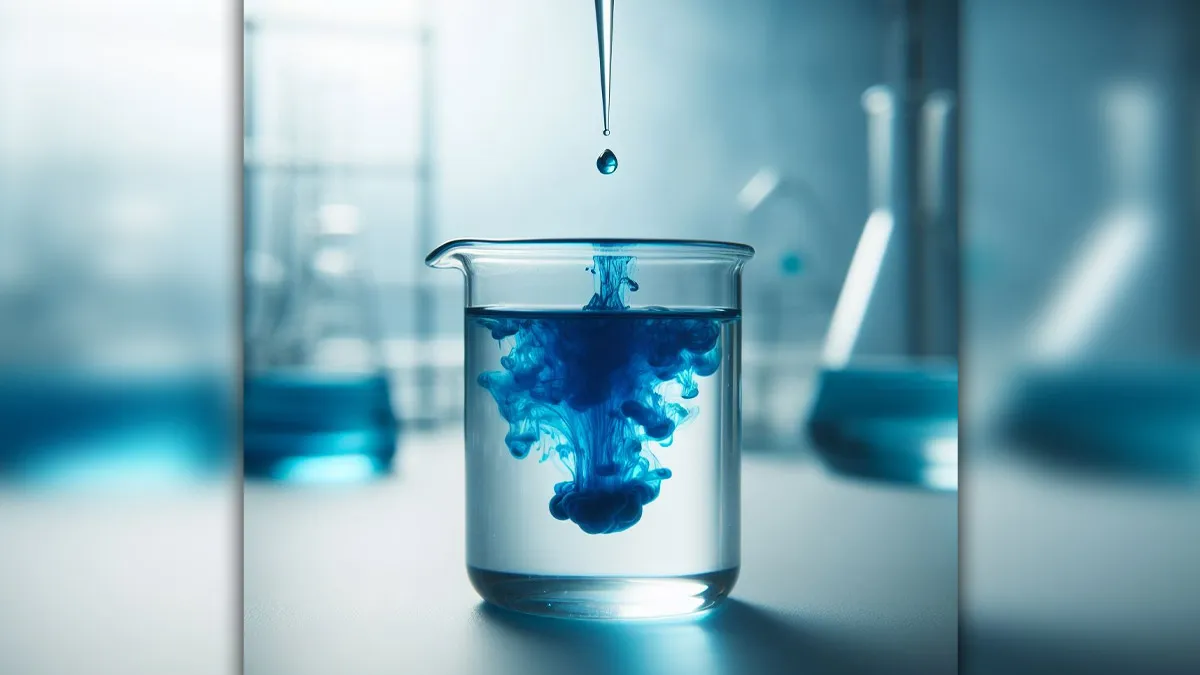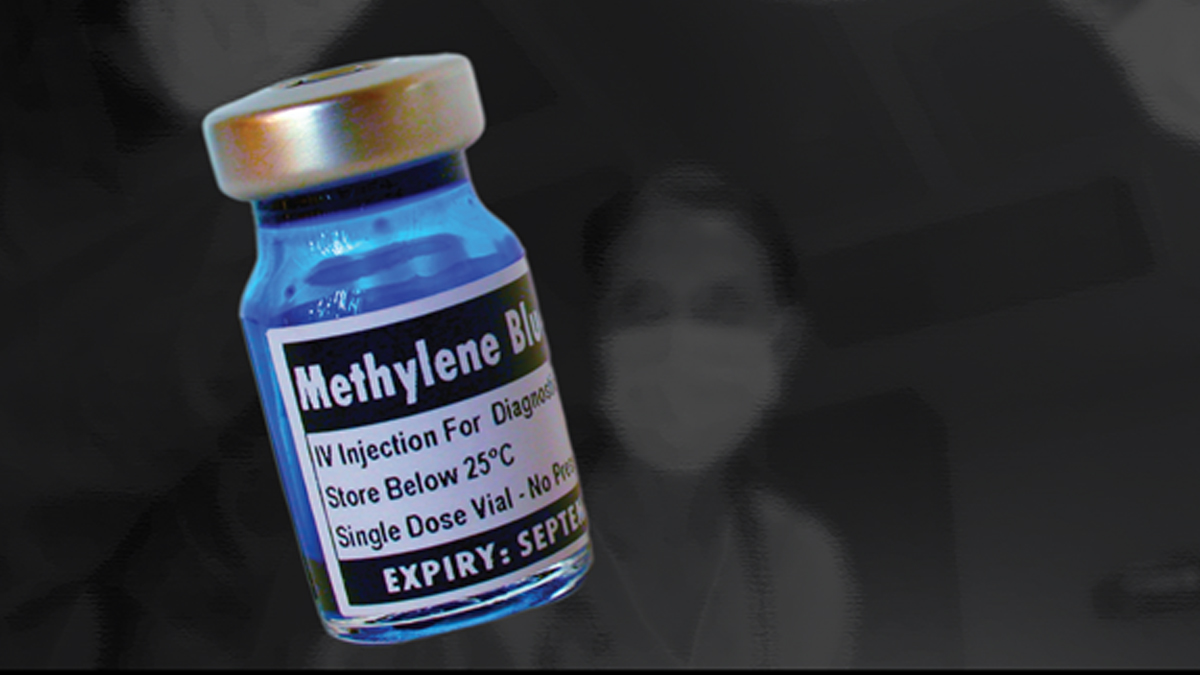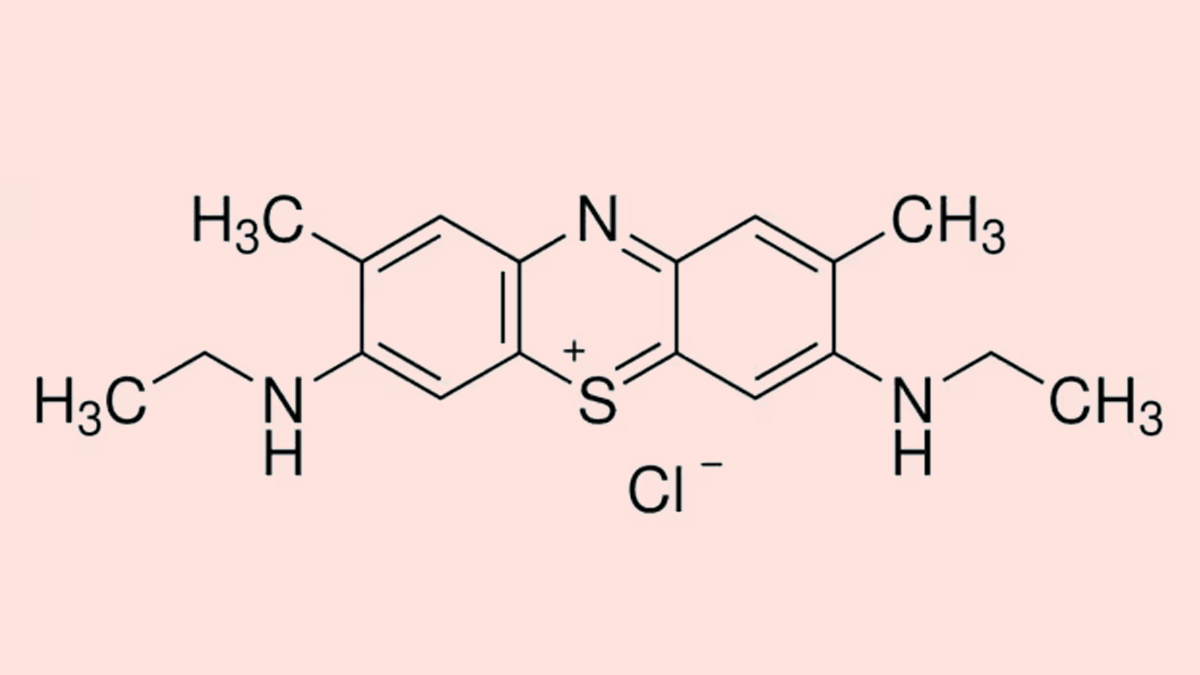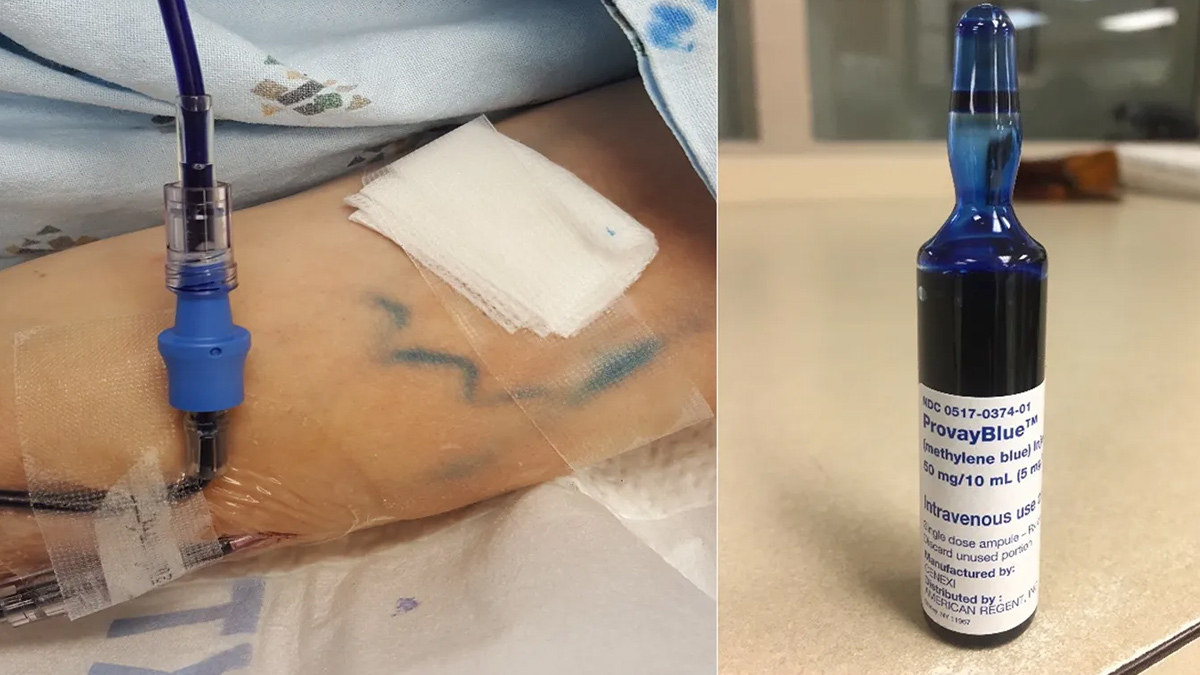
A recent viral video of Robert F. Kennedy Jr. using a bright blue liquid sparked widespread curiosity about methylene blue—a substance that has been making waves on social media as a supposed wonder drug. While some influencers and celebrities swear by its alleged health benefits, experts remain cautious. So, what exactly is methylene blue, and is it truly as beneficial as people claim?
Table of Content:-
The Social Media Frenzy Over Methylene Blue
The internet buzz surrounding methylene blue skyrocketed when a clip of RFK Jr. surfaced online. Though he never confirmed what the liquid was, many speculated that it was methylene blue. Following this, influencers and celebrities, including actor Mel Gibson and British actress Davinia Taylor, began touting its supposed benefits for everything from cancer treatment to cognitive enhancement. Supporters claim methylene blue can:

- Protect the body from radiation
- Boost brain function and focus
- Help fight infections
- Combat depression
- Prevent dementia
But while the hype grows, experts are urging caution, emphasizing that methylene blue is not a cure-all and could pose risks when used improperly.
Also Read: Tamil Nadu Launches Statewide Leprosy Detection Drive To Curb Rising Cases
What Exactly Is Methylene Blue?
Originally developed in the 19th century, methylene blue was first used to treat malaria. It functions by increasing hemoglobin levels, helping the blood transport oxygen more efficiently. Over time, it was also used in medical treatments for conditions like carbon monoxide poisoning, sepsis, and a rare blood disorder called methemoglobinemia.
Though its medical applications have declined with the advent of modern treatments, methylene blue still finds use today—in laboratories, aquariums (as a fish tank disinfectant), and niche medical treatments.

The So-Called ‘Wonder Drug’ – Does It Work?
The claims surrounding methylene blue largely stem from its effects on cellular function. It is believed to enhance mitochondrial activity, the process that fuels energy production in cells. Some researchers speculate that this could slow aging, improve brain function, and even reduce the risk of neurodegenerative diseases like Alzheimer’s. Several small-scale studies have explored methylene blue’s potential:
- A 2020 Chinese study suggested it might help with Alzheimer’s.
- A 2011 trial found improvements in bipolar disorder symptoms.
- A 1987 U.S. study indicated it could help with severe depression.
- A 2020 Brazilian study suggested it could act as an antiseptic for urinary tract infections.
Also Read: Sickle Cell Disease Surges In Rajasthan’s Tribal Districts, Over 10,000 Affected: Report
However, these studies had very small sample sizes, and conclusive, large-scale evidence is lacking. Medical experts stress that while the results are interesting, they are far from definitive proof of methylene blue’s effectiveness.
The Risks and Dangers of Methylene Blue
Despite its growing popularity, methylene blue is not without risks. One of the most significant dangers is serotonin syndrome, a life-threatening condition that can occur when combined with certain antidepressants (SSRIs). Symptoms include:

- Confusion
- Agitation
- Seizures
- Irregular heartbeat
- Loss of consciousness
Additionally, individuals with a genetic enzyme deficiency called G6PD deficiency, common among certain ethnic groups, may be at a heightened risk of serious side effects.
Bottomline
While methylene blue has legitimate medical uses, its trending status as a miracle supplement is largely based on speculation. Experts caution against self-experimentation, emphasizing that taking it without medical supervision could be dangerous.
Until further research provides stronger evidence of its benefits, it’s best to approach methylene blue with skepticism. If you’re considering using it for any health purpose, consulting a doctor is essential to avoid potential risks.
Also watch this video
How we keep this article up to date:
We work with experts and keep a close eye on the latest in health and wellness. Whenever there is a new research or helpful information, we update our articles with accurate and useful advice.
Current Version